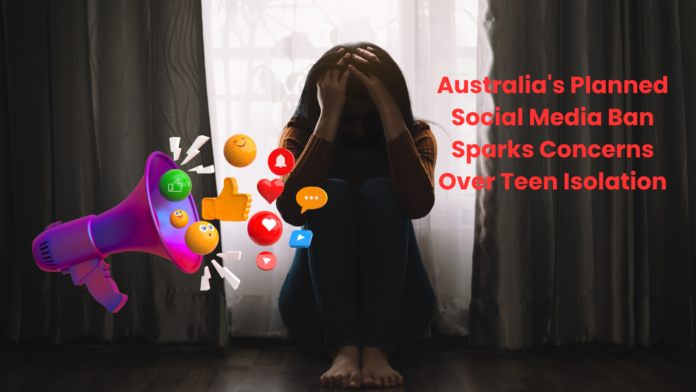Australia’s proposed social media ban has sparked concerns over the potential isolation of teens, particularly among vulnerable groups like refugees. For 14-year-old Tereza Hussein, the ban could sever her only connection with her grandmother, whom she has never met in person. Hussein, a refugee from the Democratic Republic of Congo who now resides in Darwin, relies on social media as her lifeline to stay connected with her family.
“It’s the only way I’ve ever connected to my grandma before, over socials,” Hussein said, explaining how social platforms have allowed her to maintain a relationship with her grandmother, despite the physical distance. Hussein was born in the Democratic Republic of Congo but spent years in a refugee camp in Malawi before relocating to Australia at the age of nine.
Australia’s proposed ban aims to address growing concerns over the influence of social media on young people’s mental health, but critics argue that it could have unintended consequences, particularly for teenagers who rely on these platforms to stay in touch with loved ones abroad. For young refugees like Hussein, social media is often the only accessible means to maintain a connection with family members left behind.
Advocates for refugees and migrant communities are expressing concerns that the ban could exacerbate feelings of isolation among young people already facing the challenges of resettlement. “For many refugees, social media is the only way they can stay connected with family members who are still in difficult situations abroad,” said one advocate. “Cutting off this access could have serious mental health impacts.”
The Australian government, while considering the ban, has not yet specified how it would be implemented or what exceptions, if any, would be made. However, the move has ignited a national conversation about the role of social media in the lives of young people and how policies should balance online safety with maintaining vital personal connections.
For Hussein, the potential ban underscores a deep fear of losing touch with her grandmother. “She’s the most important person to me, even though I’ve never met her in person. Losing that connection would be heartbreaking,” she said.
As Australia debates the future of social media access for young people, stories like Hussein’s highlight the complex impact such a policy could have on the country’s diverse and globally connected youth.




